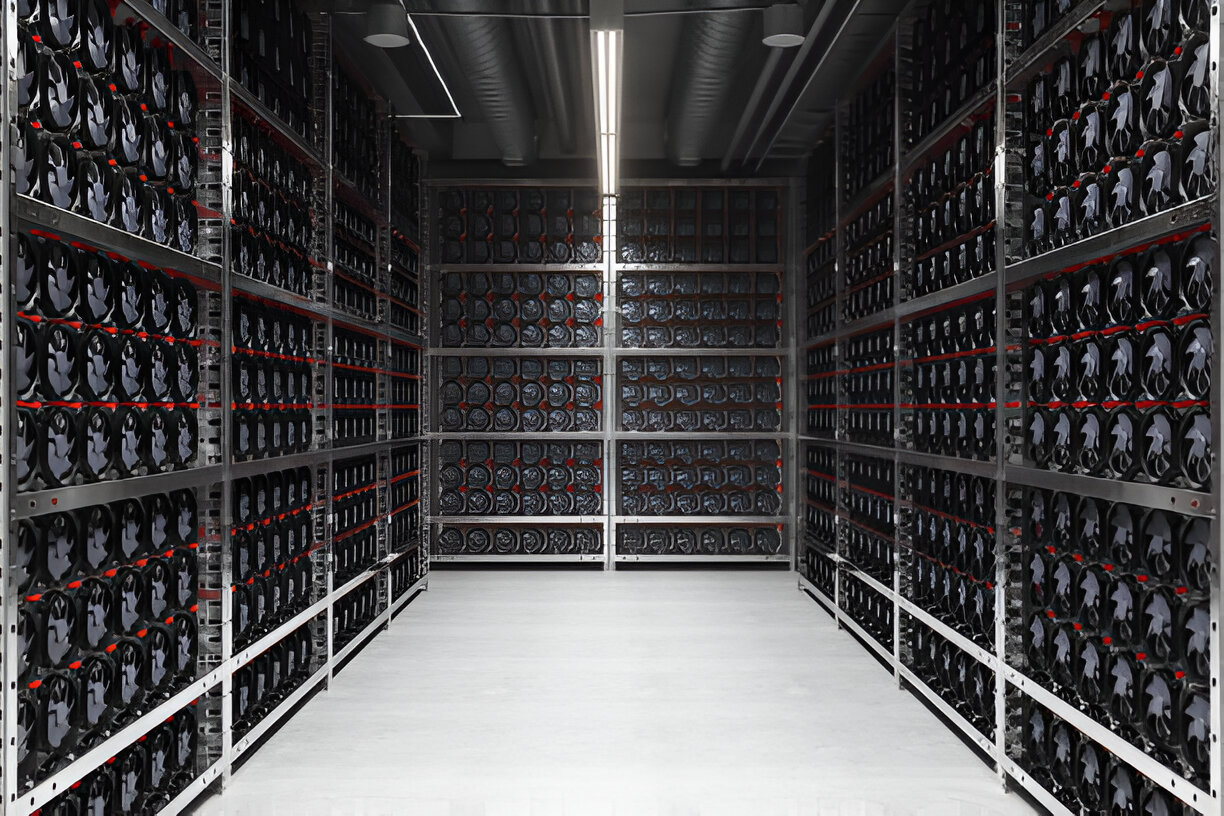
Maximizing Crypto Mining Profitability: Strategies That Work in 2025

As the cryptocurrency landscape continues to evolve, so too must the strategies for mining profitability. In 2025, crypto miners face a unique set of challenges and opportunities, from increasing network difficulty to rising energy costs. In this blog post, we’ll explore proven strategies that miners can use to maximize their profits in 2025, including hardware optimization, energy efficiency, mining pool strategies, and diversification. Whether you’re an experienced miner or new to the industry, these strategies will help ensure that your mining operations remain profitable in an increasingly competitive space.
Optimizing Your Mining Hardware for Maximum Profit
Mining profitability in 2025 is heavily reliant on the hardware
you use. The competition among miners has increased significantly, especially
as the network difficulty for major cryptocurrencies like Bitcoin and Ethereum
continues to climb. To stay competitive and profitable, miners need to ensure
their equipment is running at optimal efficiency. Here are some ways to
maximize profitability through hardware upgrades and maintenance:
1. Invest in Latest-Generation Mining Equipment
In 2025, older mining rigs may no longer provide the returns
they once did. As Bitcoin mining difficulty continues to rise, mining with
outdated equipment can become inefficient and unprofitable. The key to
maintaining profitability is investing in the latest mining hardware, such as ASIC
miners (Application-Specific Integrated Circuits) or GPUs designed for
efficiency.
Leading mining equipment manufacturers, like Bitmain and MicroBT,
are constantly releasing newer, more powerful models that offer higher hash
rates while consuming less energy. Miners looking to maximize profits in 2025
should prioritize upgrading their rigs to equipment that offers the best
power-to-performance ratio.
2. Overclocking for Better Performance
For experienced miners, overclocking is a valuable tool for
maximizing hardware performance without needing to invest in new equipment.
Overclocking allows miners to increase the hash rate of their machines,
improving performance without the need for additional hardware. However, it’s
essential to keep in mind the risks involved, such as the increased heat
generation, which could shorten the lifespan of the mining rig if not properly
managed.
To mitigate these risks, miners should also invest in advanced
cooling systems that can keep hardware temperatures within safe operating
ranges. Proper cooling not only protects the equipment but also enhances
performance, making it a worthwhile investment for those looking to maximize
profitability.
3. Regular Maintenance and Monitoring
Miners often overlook routine maintenance, but ensuring that
equipment is running smoothly can have a significant impact on profitability.
Regularly cleaning dust, replacing worn-out components, and ensuring that cooling
fans are functioning properly will prevent unnecessary breakdowns and
inefficiencies. Using monitoring software to track the health and performance
of mining rigs allows miners to quickly identify and address issues before they
become expensive problems.
Optimizing Energy Efficiency and Reducing Costs
Energy consumption is one of the biggest costs associated
with cryptocurrency mining. In 2025, maximizing energy efficiency is not only a
smart strategy but also a critical factor in ensuring profitability. Here are
key strategies to keep energy costs in check:
1. Switch to Renewable Energy Sources
As global energy prices rise, many miners are turning to renewable
energy to reduce their reliance on fossil fuels and cut down on costs. In 2025,
renewable energy is not only more cost-effective in many regions, but it also
allows miners to lower their carbon footprint and operate more sustainably.
Miners can explore solar, wind, or hydropower as alternative
energy sources. For those who mine in remote areas or regions with abundant
natural resources, the opportunity to build a self-sustaining mining farm
powered by renewable energy is becoming a more viable option.
For miners who don’t have access to their own renewable
energy, green mining contracts or partnerships with renewable energy providers
offer an excellent alternative. These contracts allow miners to buy clean
energy directly from providers at competitive rates, reducing both energy costs
and environmental impact.
2. Participate in Demand Response Programs
In many regions, demand response programs offer financial
incentives to businesses that reduce their energy consumption during peak
demand hours. Crypto miners, with their ability to control when they run their
rigs, can participate in these programs by shutting down their operations or
reducing their energy usage during times of high grid demand.
In exchange, miners receive compensation, which can be
reinvested to offset energy costs or used to upgrade hardware. By participating
in demand response programs, miners can take advantage of lower energy rates
and boost their overall profitability.
3. Utilize Efficient Cooling Systems
The heat generated by mining rigs requires additional energy
for cooling, which can increase operational costs. In 2025, miners are
increasingly looking for more energy-efficient cooling solutions, such as liquid
cooling or immersion cooling, which offer better heat dissipation while using
less power.
Investing in smart cooling systems that adjust based on
real-time temperature readings can also help minimize energy consumption.
Reducing cooling costs while maintaining the optimal operating temperature of
the rigs is crucial for ensuring that profits are not eaten up by unnecessary
energy waste.
Diversifying Mining Strategies and Income Streams
While Bitcoin mining remains the most well-known,
diversification is essential for maximizing profitability in 2025. As the
crypto landscape continues to evolve, new opportunities arise for miners to
generate additional revenue streams. Here are several ways to diversify and
optimize your mining strategy:
1. Join Mining Pools
In 2025, solo mining has become increasingly difficult and
less profitable due to the growing network difficulty of major
cryptocurrencies. Joining a mining pool allows miners to combine their
computational power, increasing the chances of successfully mining a block. In
exchange, the reward is shared among the pool members based on their
contribution to the effort.
Mining pools provide a steady stream of income, even though
the rewards per block are smaller, making them an ideal solution for miners who
want consistent returns. By joining the right pool, miners can also benefit
from lower variance in payouts and potentially higher profits over time.
2. Diversify into Altcoins
While Bitcoin remains the leader, there are many other
cryptocurrencies that can be mined profitably, especially as new coins enter
the market with less difficulty than Bitcoin. In 2025, miners should consider diversifying
their operations by mining altcoins such as Ethereum, Litecoin, Ravencoin, or Monero.
By mining a variety of coins, miners can take advantage of
fluctuations in market conditions, ensuring a more balanced revenue stream. For
example, when the mining difficulty for Bitcoin increases, the difficulty of
altcoins may not rise as quickly, creating an opportunity for miners to switch
to more profitable altcoins.
3. Invest in Staking and Yield Farming
With the rise of Proof of Stake (PoS) coins, miners can also
consider shifting some of their resources to staking or yield farming. Staking
involves locking up a certain amount of cryptocurrency in a network to support
its security and operations, earning rewards in the process.
Yield farming, on the other hand, involves lending
cryptocurrency to decentralized finance (DeFi) platforms to earn interest or
rewards. Both staking and yield farming offer attractive returns and can
diversify a miner's income streams, making them a viable option for those
looking to maximize profitability.
Conclusion: Staying Ahead in the Competitive Mining Landscape of 2025
In 2025, crypto mining has become a highly competitive and
rapidly evolving industry. To maximize profitability, miners must stay ahead of
the curve by upgrading hardware, optimizing energy efficiency, and diversifying
mining strategies. The landscape is changing, and those who adapt to new
technologies, take advantage of sustainable energy sources, and explore
alternative income streams will be in the best position to thrive.
By implementing the strategies outlined in this post, miners
can position themselves for long-term success and ensure that their operations
remain profitable in 2025 and beyond. Whether you're a seasoned miner or just
getting started, the key to success is staying informed, adapting to changes,
and continuously optimizing your operations for maximum efficiency.
In 2025, mining isn't just about raw computing power it's about leveraging efficiency, sustainability, and smart investments to ensure long-term profitability. Industry Expert


